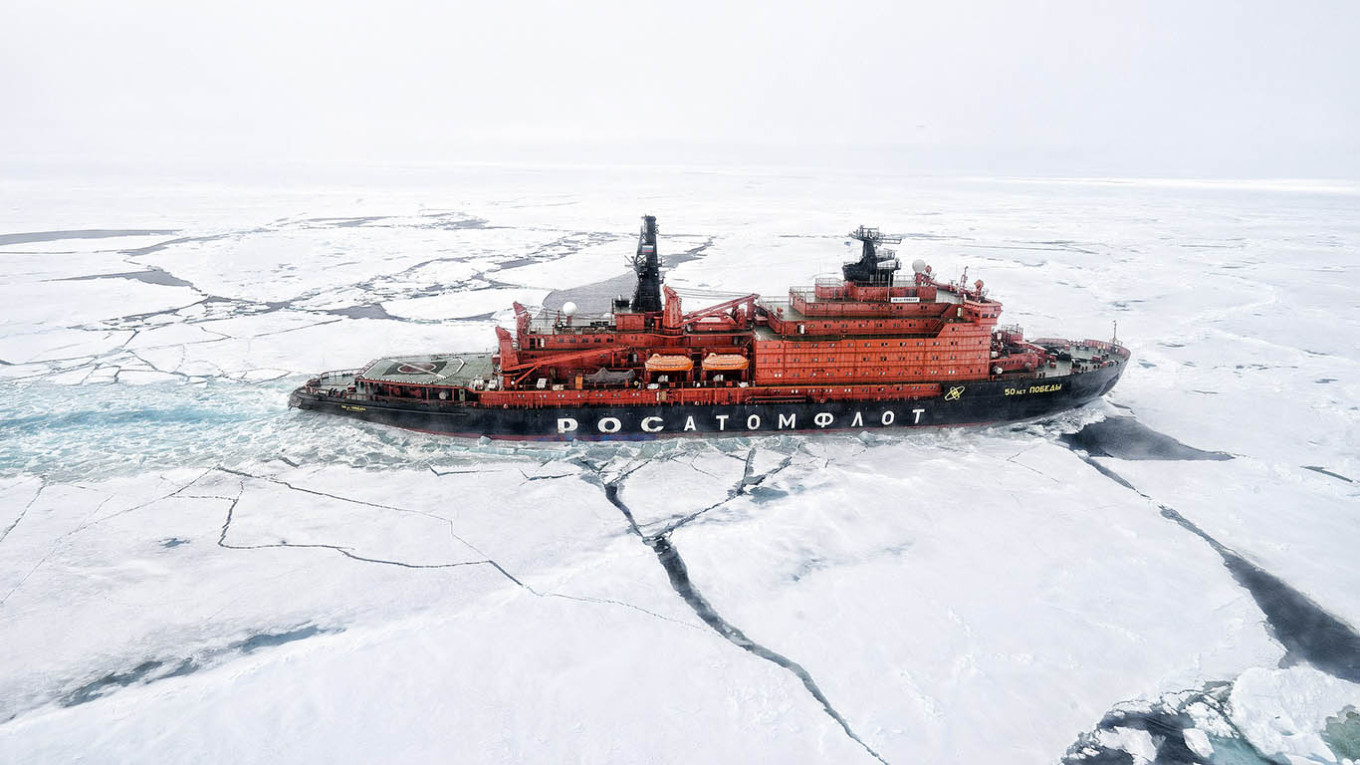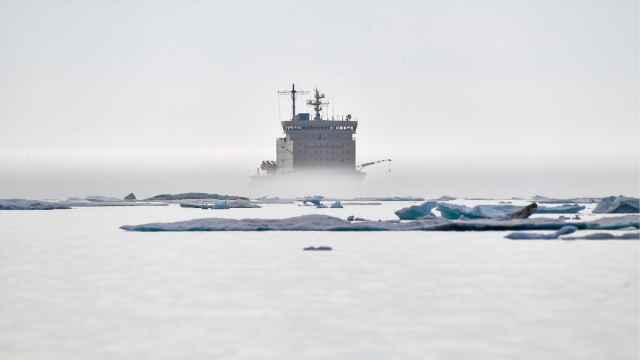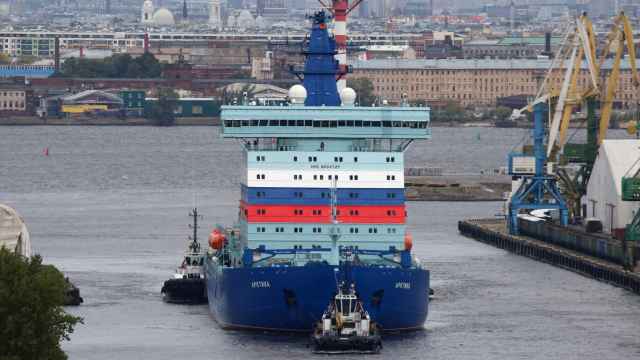Shipping volumes along Russia’s Northern Sea Route reached a record 37.9 million tons in 2024, the state nuclear corporation Rosatom announced Thursday, though that figure still lagged far behind earlier targets.
President Vladimir Putin had previously said that shipment volumes along the route should increase to 80 million tons by 2024, and according to Russia’s ambitious 2020 Arctic Strategy, shipments are supposed to reach 130 million tons by 2035.
Despite missing the target of 80 million tons for last year, Rosatom, which oversees the route, highlighted other milestones, including a record 92 voyages and a 100% approval rate for the 1,312 shipping applications submitted in 2024.
Rosatom director Alexei Likhachev also announced plans to further expand Russia’s transportation network, proposing a new corridor from Kaliningrad in the Baltic Sea to Vladivostok in the Far East.
Russia touts the Northern Sea Route, which stretches some 5,000 kilometers (3,107 miles) between the Barents Sea and the Chuckchi Sea, as an alternative shipping lane between Europe and Asia, claiming it can shorten transit times by up to 15 days compared to the Suez Canal.
The Northern Sea Route is closed to conventional shipping for much of the year. But as human activity heats the planet, melting Arctic ice is making the route increasingly accessible, raising both economic opportunities and environmental concerns about its future use.
Climate scientists said this week that 2024 was the hottest calendar year on record, with global temperatures 1.6 degrees Celsius above pre-industrial averages.
A Message from The Moscow Times:
Dear readers,
We are facing unprecedented challenges. Russia's Prosecutor General's Office has designated The Moscow Times as an "undesirable" organization, criminalizing our work and putting our staff at risk of prosecution. This follows our earlier unjust labeling as a "foreign agent."
These actions are direct attempts to silence independent journalism in Russia. The authorities claim our work "discredits the decisions of the Russian leadership." We see things differently: we strive to provide accurate, unbiased reporting on Russia.
We, the journalists of The Moscow Times, refuse to be silenced. But to continue our work, we need your help.
Your support, no matter how small, makes a world of difference. If you can, please support us monthly starting from just $2. It's quick to set up, and every contribution makes a significant impact.
By supporting The Moscow Times, you're defending open, independent journalism in the face of repression. Thank you for standing with us.
Remind me later.






